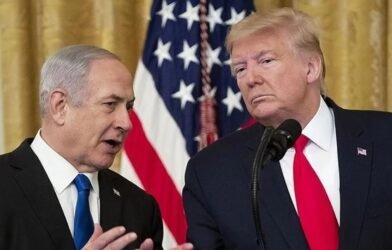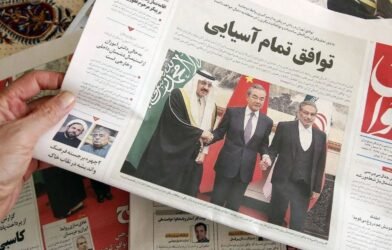Subtotal $0.00
Since 1979, when Iranian students stormed the U.S. Embassy in Tehran and held American diplomats hostage, the U.S. strategy toward Iran has become aggressive. The US has led the whole world to isolate Iran, turning it into a pariah state even among its neighbors and brotherly Muslim countries. The United States played a pivotal role in building an Arab coalition that included Iraq, Egypt, Jordan and the Gulf states, to stop what was then called the "export of the Iranian revolution" to the rest of the Muslim countries. This policy was the official strategy in the United States until it and its European partners felt that there was no other way to confront Iran's nuclear ambitions except to make some concessions. Israel and the Gulf states strongly opposed this idea. Eventually, the pressure paid off when President Donald Trump came to the White House and withdrew from the 2015 nuclear deal with Iran, the Joint Comprehensive Plan of Action (JCPOA), and practiced the "maximum pressure" policy. Indeed, the pressure on Iran's "hornet's nest" did not stop Iran's pursuit of an active nuclear program, but rather pushed it towards accelerating the program as a bargaining tool. This situation seems to have prompted many American policymakers to realize that their policy has not prevented Iran from advancing. On the contrary, it has made it more aggressive and pushed it away from India, a U.S. ally, to fall into the arms of China, making the Chinese front stronger and more worrisome. The US political elite is haunted by the idea that China will soon knock America out of world leadership, if the US doesn't stop it before it's too late. Although President Joe Biden's administration has converged with the Trump administration on defining China as the main adversary or competitor of the United States, the Biden administration seems to have a different strategy regarding Sino-Iranian relations, which aims to drive a wedge between Iran and China to weaken the Chinese front. Therefore, it would not be surprising if we see some sort of US leniency towards Tehran in the next few months, which could pave the way for better relations between Saudi Arabia and Iran. For its part, Saudi Arabia seems a bit worried after President Trump and his son-in-law Jared Kushner left the White House, especially since this coincided with Benjamin Netanyahu's loss of power in Israel. It has become clear that the new US administration is not on good terms with Saudi Crown Prince Mohammed bin Salman (MBS) over the Jamal Khashoggi case, and will not give him carte blanche, as the Trump administration did. On a larger level, several indicators, including the withdrawal from Afghanistan and Iraq, made the Gulf states realize early on in Biden's tenure that the new US strategy of concentrating power in India/Asia-Pacific and rapprochement with Iran would eventually mean lifting the US security blanket on the Gulf. This would leave them exposed to Iran, especially since Israel is not willing to fight their wars on their behalf, as many Israeli leaders tend to state. Although there are many differences between Saudi Arabia and Iran, the main reason for their hostility is that they both stand on different fronts. In other words, Saudi Arabia's attachment to the United States is the main reason for this strained relationship with Iran. The Saudis may have felt that their allies in the US may make them a scapegoat in the improved US relations with Iran. Therefore, they may be willing to outmaneuver the U.S. and strike a deal with their Iranian neighbors before the U.S. does. If this happens, it would be well received in the Muslim world. It would: "demonstrate the wisdom of the Saudi leadership and its keenness to maintain peace and fraternal relations with other Muslim countries," as the Saudi media would say at the time, helping Saudi Arabia and Iran score bonus points. For Iran, repairing its relations with Saudi Arabia and other Arab countries is a stated goal. If Saudi Arabia is willing to change the direction of its sails towards Tehran, it will be met with open arms, as this helps Iran change its status from a pariah state to an accepted part of the region. This rapprochement will have a positive impact on the proxy wars in Syria and Yemen, and will also minimize political divisions in Lebanon and Iraq. Better relations between the two countries will also make both Pakistan and Afghanistan breathe a sigh of relief, as both countries are caught in a cumbersome balancing game between the two important Muslim countries.
4012:54
On the other hand, this could negatively affect the Arab wave of normalization with Israel, as Israeli services will no longer be needed in the region or in Washington. Few can argue the importance of Saudi Arabia in the region and beyond, especially in the Muslim world. A new Saudi policy toward Iran, a traditional regional power, would lead to stability and security in the region, including a strong blow to terrorism and militant organizations. But will that be in the United States' favor, or will it be another blow to its strategic influence and credibility? Days will certainly answer this question. However, unpleasant surprises may await all around.











